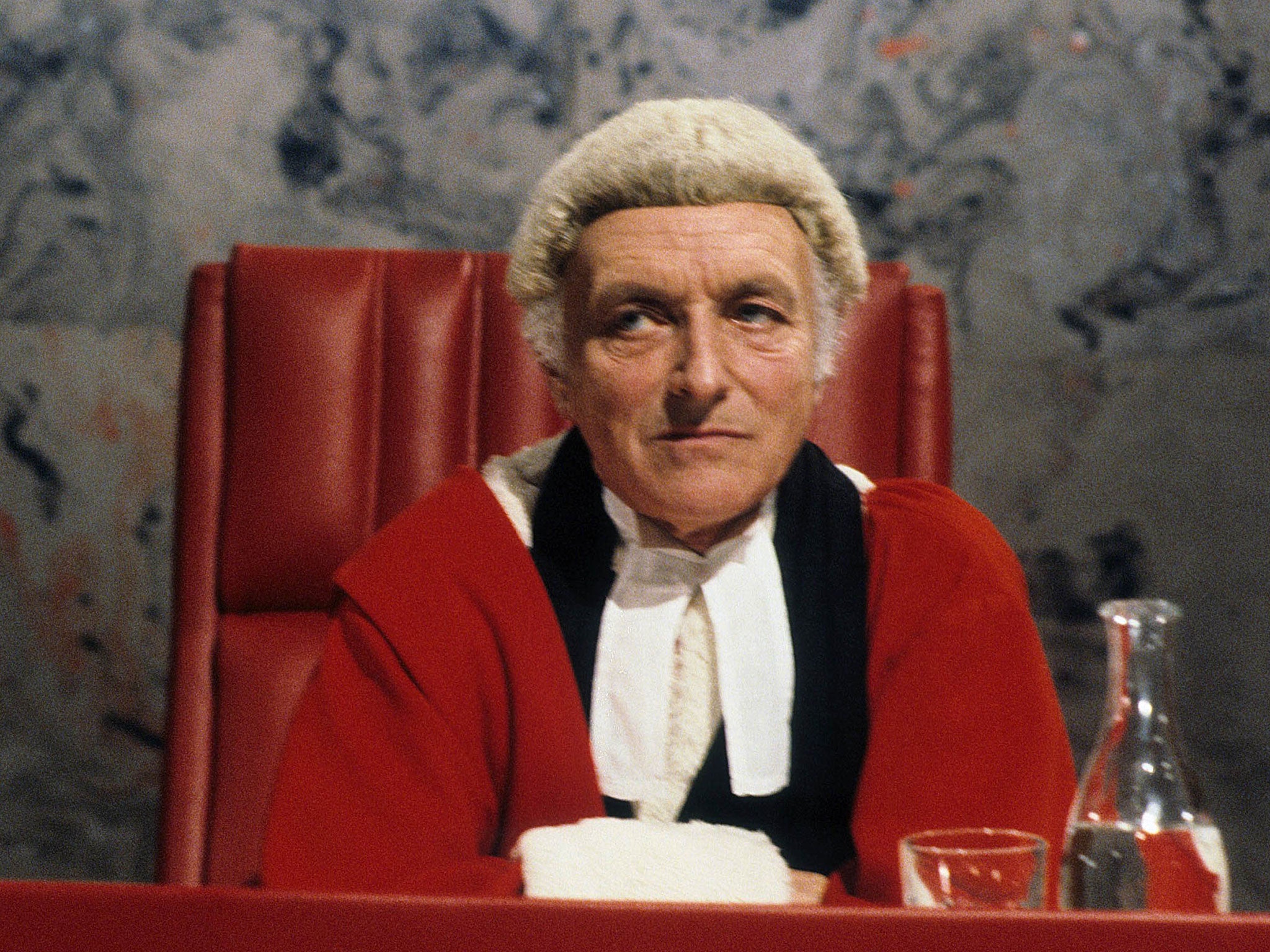Peter Howell: Actor whose screen roles included 'Emergency - Ward 10' and 'Scum' and who was a stalwart of the West End stage
Howell played the unflappable Dr Peter Harrison for 10 years, during which time he had a steady stream of letters from viewers seeking medical advice

A player of great precision and an expert at both controlled severity and modest nobility, Peter Howell, who has died at the age of 95, was a familiar if deceptively stern face on stage and screen for more than years. His narrow-eyed, often icy appearances masked a gentle nature and a passionate humanitarian spirit which, when possible, was reflected in his choice of roles.
Early in his career he was a mainstay of Britain's first medical soap, Emergency – Ward 10, playing the unflappable Dr Peter Harrison. His stint on the show began in 1957 and spanned 10 years, during which time he had a steady stream of letters from viewers seeking medical advice.
His concern for social justice fuelled his excellently infuriating performance as the sanctimonious governor in the furiously controversial Scum (1979), the cinema remake of the BBC's banned Play for Today, while his political and professional life merged beautifully when he starred as a Labour Home Secretary in Trevor Griffiths' prescient serial Bill Brand (1976), in which Jack Shepherd starred as a newly elected MP trying to cling to his socialist principles while toeing the party line.
Peter Norman Bulmer Howell was born in London in 1919. Despite the family being financially comfortable, his father, a solicitor, was emotionally barren and showed him no affection. He endured an unhappy education at Winchester and found himself studying law at Christ Church College, Oxford, to please his father, but was rescued by wartime service in 1939. He served as a second-lieutenant in the Rifle Brigade, but during Montgomery's North Africa campaign he was struck by dysentery. When he finally returned to duty he found that his entire regiment had been wiped out.
His war experiences were traumatic and he rarely spoke of them, but when he was in his nineties he called his son Ben in to see him one evening, saying he had something very serious to confess. "Ben," he said, "I must tell you, I was not a good soldier." What the statement failed to acknowledge was the mighty social conscience that the war had stirred in him, a conscience born out of the disgust he felt at the discrepancies between his own comfortable cabin on a ship to Tunisia and the squalid conditions of the men below. Once back in England he became a staunch member of the Labour Party, campaigning and canvassing for the rest of his life.
He was invalided out of the army in 1943, and his acting career began at Rada – not as a student, but bolstering up productions by filling the shoes of males who were away fighting. After finding himself in an air-raid shelter with now-forgotten stars Nicholas Hannen and Athene Seyler, he was recommended to join Olivier's company at the Old Vic, which bombing had relocated to the New Theatre (now the Albery). He was soon acting alongside Olivier in Richard III, and Ralph Richardson and Sybil Thorndike in Peer Gynt. But after several years of small parts and understudying he decided to leave and gather experience elsewhere, admitting that he found the prospect of having to go on in place of one of the great actors of the day terrifying. He joined another Old Vic company led by Peter Glenville and immediately made an impression as Gildenstern.
His career on stage included frequent appearances at the Bristol Old Vic, which he had visited regularly with Olivier's troupe, and a number of West End successes, including playing Martin in CP Snow's The Affair (Strand Theatre, 1961), and Conduct Unbecoming (Queen's Theatre, 1969). He appeared in the National Theatre's production of The Elephant Man at the Lyttelton in 1980, and in a commendable Heartbreak House at the Royal Exchange, Manchester in 1981.
His silver voice painted marvellous pictures on radio, most memorably in the BBC's exemplary 1981 dramatisation of The Lord of the Rings; he was also Cyril Hood, the Bishop of Felpersham, in The Archers (1987-2006). On television he was equally at home in period dramas such as Elizabeth R (1971) and Edward the Seventh (1975), on rare excursions into comedy such as Yes, Minister (1982), and representing officialdom in shows like The Professionals (1981). He ended his career with a big-screen appearance alongside Johnny Depp in the lusty The Libertine (2004).
As well as teaching at the Guildhall School of Music and Drama, serving on the committee of Equity, campaigning for the lowering of the homosexual age of consent, helping to avert the MCC's intended tour of apartheid South Africa in 1968, and almost single-handedly raising the money to build the Waterman's Arts Centre near his home in Chiswick, he also spent every summer, well into his eighties, reciting poetry at the Southwold Festival, and enjoyed a 35-year marriage that was cut short by his wife's death in 1992.
They had met at a party, and he had been so enamoured that he went twice around the Circle Line just so that he could continue asking about her. It was typical of a man ruled by the very finest emotions.
SIMON FARQUHAR
Peter Norman Bulmer Howell, actor, teacher and campaigner: born London 25 October 1919; married 1957 Susan Cheshire (died 1992; three daughters, one son); died London 20 April 2015.
Join our commenting forum
Join thought-provoking conversations, follow other Independent readers and see their replies
Comments
Bookmark popover
Removed from bookmarks